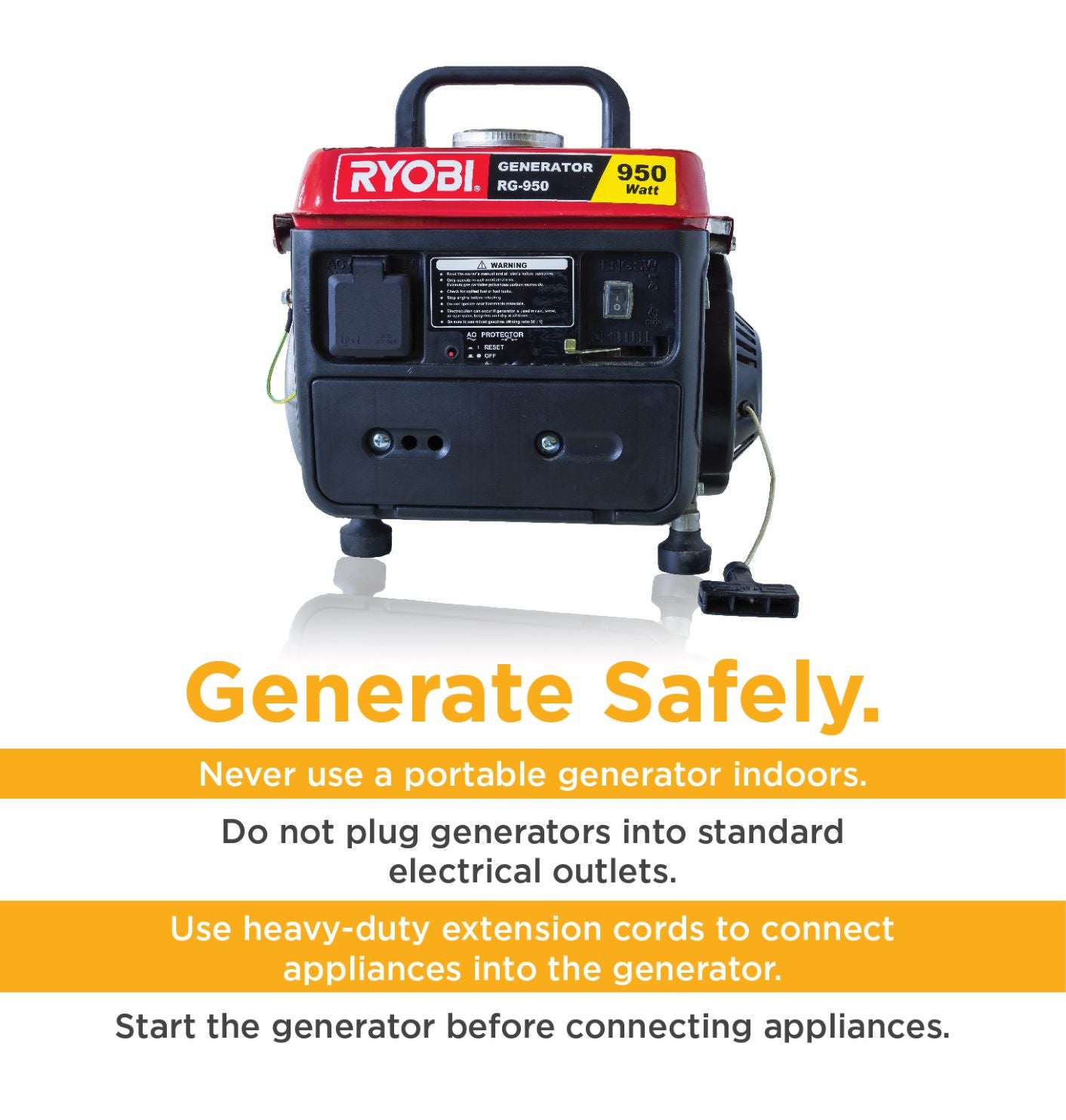Generators may offer some conveniences during periods of long-term power outages, but they can also be dangerous and even deadly if they are not used or installed correctly.
Portable generator safety
- Never plug a portable generator into a wall outlet or connect directly to a home's wiring. This can back-feed and energize power lines which creates a life threatening situation for linemen working on power lines.
- Read and follow all manufacturer operating instructions to properly ground the generator.
- Test the ground fault circuit interrupter, commonly known as a GFCI, on the generator every time you fire up the engine.
- Maintain adequate ventilation. Generators emit carbon monoxide. Do not operate a generator in your home, garage, or other enclosed building.
- Keep children and pets away from generators at all times.
- Use proper extension cords. Use only safety-tested, shop-type electrical cords designed and rated for heavier, outdoor use to connect appliances.
- Turn off the generator and allow it to cool before refueling.
- Before shutting down a generator, turn off and unplug all appliances and equipment being powered by the generator.
Contact an electrician to determine the best equipment for your situation or needs. A professional electrician will know the existing safety codes and the Cooperative's safety requirements.

